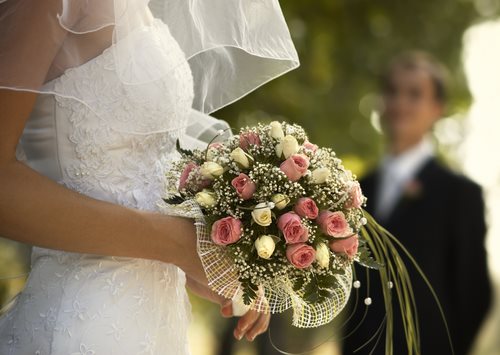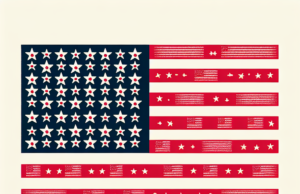What Forms are Needed for a Marriage Visa?

What Forms are Needed for a Marriage Visa?
If you are planning to marry someone from another country and would like to live together in the United States, a marriage visa or a K visa can help make your dream come true. The process of obtaining a marriage visa can be overwhelming, time-consuming, and expensive, but understanding what forms are required can make the journey a little smoother. In this article, we will discuss the various forms needed for a marriage visa, including their purposes and requirements.
K Visa Overview
A K visa allows a fiancé(e) of a U.S. citizen to enter the United States temporarily to get married. The K visa is obtained by filing Form I-129F, Petition for Alien Fiancé(e). Once approved, the fiancé(e) can enter the U.S. for 90 days and get married. After the marriage, they can apply for adjustment of status and become a permanent resident of the United States.
Form I-129F – Petition for Alien Fiancé(e)
Form I-129F is the initial form required to obtain a K visa. It is filed by the U.S. citizen sponsor and is used to establish the relationship between the sponsor and the fiancé(e). The form requires personal and biographical information from both the sponsor and the fiancé(e). The form also requires information on the sponsor’s financial stability to support the fiancé(e) while they are in the United States. Supporting documents, such as photos of the couple together, letters of intent to marry, and evidence of the sponsor’s citizenship, must be submitted with the form.
Form DS-160 – Nonimmigrant Visa Application
Once the I-129F petition is approved, the fiancé(e) can apply for a K visa. The fiancé(e) must complete Form DS-160, Nonimmigrant Visa Application, which can be found on the U.S. Department of State’s website. This form is used to gather biographical and background information about the fiancé(e), including information about their intended stay in the United States. The form must be submitted electronically, and a confirmation page must be printed and brought to the visa interview.
Form I-134 – Affidavit of Support
The U.S. government requires that the sponsor demonstrate the ability to financially support the fiancé(e) during their stay in the United States. Form I-134, Affidavit of Support, is used to demonstrate the sponsor’s financial ability. The form requires the sponsor to provide information on their income, assets, and debts, as well as information on their household size. The sponsor must provide supporting documents, such as tax returns and bank statements, to demonstrate their finances.
Form G-325A – Biographic Information
Form G-325A, Biographic Information, is required for both the sponsor and the fiancé(e). The form asks for basic information, such as name, address, and date of birth, and requires the applicant to provide information on their immigration history, criminal history, and employment history. The form must be signed and submitted with the application.
Form I-797C – Notice of Action
If the application is approved, the U.S. Citizenship and Immigration Services (USCIS) will send a notice of action, Form I-797C, to the U.S. citizen sponsor. This notice confirms that the K visa application has been approved, and includes instructions on how to proceed with the next step of the process.
Form I-129F (Supplemental Evidence) – Request for Evidence
In some cases, the USCIS may require additional evidence to process the I-129F petition. This is known as a request for evidence (RFE), and it can be common in cases where the relationship between the sponsor and fiancé(e) is not clearly established, or where financial support is unclear. The RFE will explain what evidence is needed, and the sponsor will have a certain amount of time to provide the evidence.
Form I-485 – Application to Register Permanent Residence or Adjust Status
Once the fiancé(e) enters the United States and gets married, they can apply for adjustment of status to become a permanent resident. Form I-485, Application to Register Permanent Residence or Adjust Status, is used for this purpose. The form requires information on the applicant’s biographical and immigration history, as well as information about the sponsor’s financial ability to support the applicant. Supporting documents, such as a marriage certificate and evidence of the sponsor’s finances, must be submitted with the form.
Conclusion
Obtaining a marriage visa can be a complex and daunting process, but understanding the necessary forms and requirements is key to a successful application. If you are planning to marry someone from another country and would like to live together in the United States, a marriage visa or a K visa can help make that dream become a reality. Remember to stay informed, keep track of the deadlines, and seek professional guidance if needed. Good luck with your application!
A simple pledge of vows or family photos are not going to satisfy the government when attempting to prove that the relationship between two people seeking a marriage visa.
1. Petitions for an alien relative or fiancé(e) – Based on whether or not one’s significant other is currently a spouse or not and their status to live in the United States, there are three combinations of the I-130 Petition for Alien Relative and I-129 Petition for Alien Fianceé for cases of marriage to a U.S. citizen. For the immigrant marriage
2. Affidavit of Support – For the immigrant marriage visa, help of the federal government in the form of welfare is discouraged. The petitioning spouse must be able to assert their possession of a domicile and of an income at or above 125% of the poverty line to support their incoming partner. At this point in the visa service process, the form I-864, an Affidavit of Support, must to be completed and submitted to the National Visa Center for approval and relay to a U.S. consulate or embassy abroad.
3. The visa application/removal of conditions – Along with the fees and requisite proofs of identification posted by the Department of State on official notices, there is a two-part application form, Form DS-230, to be completed by the concerned married party to submit for the interview portion of the visa service process. In addition, if the couple has been together for less than two years, the immigrant will only be listed as a conditional permanent resident, and before acquisition of the Immigrant Relative (IR) visa, will have to send in a completed USCIS Form I-751, Petition to Remove the Conditions on Residence.















